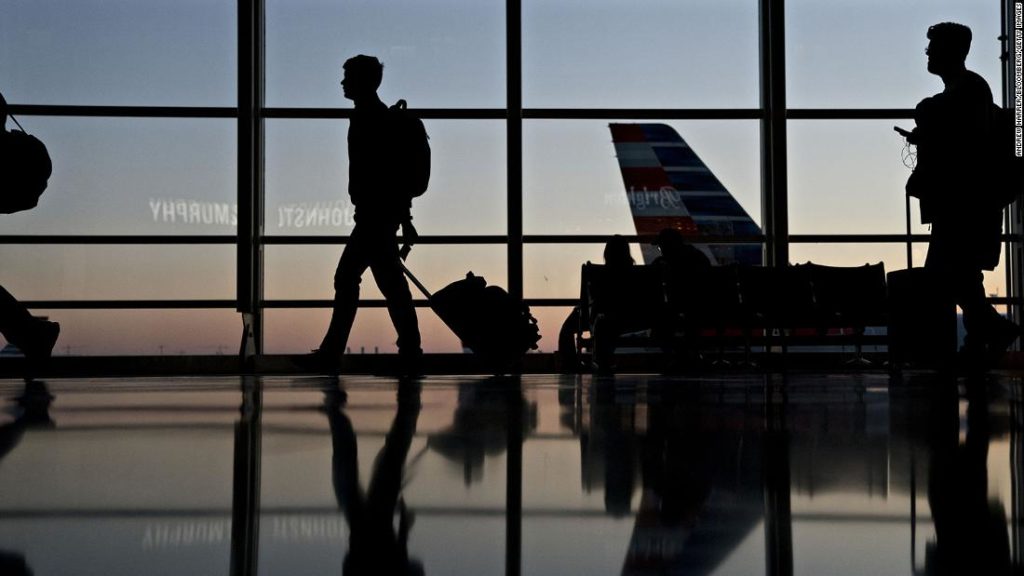Now, with coronavirus restrictions easing in many countries, the question is how quickly business travel will rebound, and whether the pandemic and efforts to address the accelerating climate crisis will prevent the lucrative sector from ever making a complete recovery.
Road warriors will themselves play a crucial role in determining whether business class is full or mostly empty, as they negotiate a return to corporate life after more than a year working from home. Some — or many — could balk at missing out on date night or their kids’ football game.
“For a lot of people, frequent business travel has become more of a burden than a perk,” said Scott Cohen, a professor at the University of Surrey in England who studies business travel. There is increasing recognition that frequent work trips can negatively effect health and personal relationships, he added.
The International Air Transport Association, which represents 290 airlines around the world, expects business travel to bounce back more slowly than vacations because companies reduced travel budgets during the pandemic and online conferencing will replace some meetings.
In the United Kingdom, where the government eased restrictions Monday on international travel, airline bosses acknowledged the challenges facing business travel but said they still expect a full recovery.
“We’ve been clear that [business travel] would recover maybe at a slower pace,” British Airways CEO Sean Doyle told BBC Radio. “But people will get back to doing business … I think people want to come here, visit and talk about business opportunities, and they like doing business face to face. So I am confident that that segment will recover.”
Suzanne Neufang, CEO of the Global Business Travel Association, said that business travel was “declared dead” following the 2008 financial crisis but eventually made a full recovery despite advances in technology that made video conferencing easier.
“There is this propensity for business people and government officials and politicians and others to need to get in front of their constituents,” she said.
Why this recovery will look different
But there is no guarantee that history will repeat itself.
The trajectory of the pandemic is another factor. The longer coronavirus remains a threat, the more business will be forced to embrace alternatives. The virus continues to rage in India, and a travel bubble between Hong Kong and Singapore has just been delayed for a second time because of rising cases. The World Economic Forum, which usually holds its annual meeting in Davos, Switzerland, on Monday abandoned plans to host a gathering in August in Singapore.
If there is to be a sea change in the way companies think about business travel, it may come in the types of trips that are deemed essential. Servicing existing clients? That can be done on Zoom, while finalizing a mega deal with foreign clients will be deemed to require a personal touch.
“It’s that more glamorous [business travel] that I think actually will survive,” said Cohen. “That more mundane segment where the relationship is already established … are the ones that I think to an extent will die. Businesses will [say], you know, that trip’s not that important. That deal’s already been done.”
That could erode some of the ecosystem that’s sprung up around business travel. Hotels, airlines and rental car companies, for example, offer points and status levels that encourage repeat business among business travelers. But for road warriors, less travel means fewer perks.
“While there can be plenty of exciting moments, many aspects of work travel aren’t as glamorous as you might think — being able to work toward a free vacation can certainly help take the sting out of spending so much in economy airplane seats and at cookie-cutter hotels instead of at home,” said Honig.
You may also like
-
Afghanistan: Civilian casualties hit record high amid US withdrawal, UN says
-
How Taiwan is trying to defend against a cyber ‘World War III’
-
Pandemic travel news this week: Quarantine escapes and airplane disguises
-
Why would anyone trust Brexit Britain again?
-
Black fungus: A second crisis is killing survivors of India’s worst Covid wave

